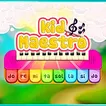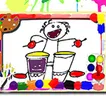























Discover the Joy of Piano Games: Learn, Play, and Master the Keyboard Online
In a world where digital innovation meets the timeless beauty of music, piano games have emerged as a delightful fusion of entertainment and education. These interactive experiences invite users of all ages to engage with the piano in a virtual realm, offering a unique approach to learning that is both enjoyable and effective. With no need for a physical instrument, these games provide an accessible platform for anyone with a passion for music to practice and improve their piano skills online.
Piano games cleverly integrate the joy of gaming with the fundamentals of music education. They challenge players to hit the right notes, maintain the rhythm, and follow complex melodies, all while navigating through engaging storylines or completing rewarding challenges. This playful approach to learning can lead to a deeper understanding of music theory, enhance hand-eye coordination, and develop a sense of timing and rhythm.
For beginners, these games serve as an inviting introduction to the world of piano playing, offering step-by-step tutorials that make the learning curve less steep. Experienced pianists, on the other hand, can use these games to refine their skills and tackle new, challenging compositions. The interactive nature of piano games also allows for instant feedback, enabling players to recognize their mistakes and improve more quickly than they might through traditional practice alone.
The beauty of piano games lies in their ability to transcend the barriers of traditional music education. They eliminate the need for costly instruments and lessons, making the joy of piano playing available to anyone with a computer or smart device. As we continue to embrace the digital age, piano games stand out as a testament to the potential of technology to enrich our lives and our love for music.
Mastering Piano Games: Enhancing Musical Skills Through Interactive Play
Piano games are not just virtual playgrounds; they are sophisticated educational tools that seamlessly blend the fun of interactive play with the serious business of music learning. By simulating the experience of playing a real piano, these games offer hands-on learning that covers everything from basic note recognition to advanced music theory. They cater to a range of skill levels, ensuring that both novices and seasoned musicians find value in their gameplay.
The educational benefits of piano games are manifold. For one, they encourage players to engage with musical concepts in a dynamic environment, which can be far more stimulating than rote memorization or passive listening. As players navigate through levels, they are often required to read music, identify chords, and understand scales, thereby reinforcing their theoretical knowledge of music. Additionally, the interactive nature of these games demands a level of coordination and rhythm that might take longer to develop through traditional piano practice.
Moreover, the instant feedback provided by piano games is invaluable for learning. Mistakes are immediately evident, and most games offer suggestions for improvement, allowing players to quickly correct their errors and learn from them. This trial-and-error process is a powerful way to build musical proficiency and confidence.
Accessibility is another significant advantage of piano games. Those without the means or space for a piano can still immerse themselves in the world of music. This democratization of music education opens doors for countless individuals who might otherwise never have the opportunity to learn an instrument.
In essence, piano games are revolutionizing the way we approach music education. By offering an interactive, accessible, and comprehensive learning experience, they are helping to cultivate a new generation of musicians who find joy in the challenge of mastering the piano.
The Evolution of Piano Games: Technological Advancements and Realistic Features
Piano games have come a long way since their inception, with technological advancements playing a pivotal role in enhancing the player experience. The latest iterations of these games boast high-quality sound samples that mimic the tonal richness of grand pianos, giving users a near-authentic auditory experience. This leap in sound quality is crucial, as it provides players with a more accurate representation of the music they are creating, which is essential for developing a good ear for pitch and tone.
The realism doesn’t stop at sound. Many piano games now offer a variety of virtual instruments, allowing players to experiment with different sounds and styles, from the harpsichord to modern synthesizers. This not only adds variety to the gameplay but also exposes users to a broader spectrum of musical possibilities.
Interactivity has also seen significant improvements. With more sophisticated software, piano games can now accurately track a player’s input, providing real-time feedback that is more precise than ever. This includes recognizing nuances in timing and dynamics, which are critical for players looking to refine their expressiveness and technical skills.
Moreover, the visual components of these games have become more engaging, with animations and backgrounds that enrich the storytelling aspect of music. This immersive environment keeps players captivated and motivated to progress through levels or pieces.
These advancements have transformed piano games from simple rhythm-based activities to comprehensive platforms for musical exploration and education. The result is an experience that not only simulates playing a real piano but also encourages a deeper appreciation for the art of music. As technology continues to evolve, we can expect piano games to become even more realistic, further blurring the lines between virtual play and actual piano mastery.
Connecting Through Piano Games: Community, Collaboration, and Support
Piano games extend beyond individual play, fostering a vibrant community where enthusiasts can connect, collaborate, and support one another. These virtual platforms offer more than just a space to practice and play; they become social hubs where musicians of all levels share their performances, exchange tips, and celebrate achievements. Aspiring pianists can find mentorship and encouragement, while seasoned players might discover fresh inspiration and engage in friendly competition.
The collaborative nature of these communities often leads to the creation of original compositions and arrangements, showcasing the creative potential that can be unlocked when musicians come together. Online forums and chat features enable real-time discussions, making it easier for players to seek advice, discuss musical challenges, and find solutions together. This collective wisdom is a powerful resource for learning and improvement.
Moreover, these communities can act as support networks, offering both technical assistance and emotional encouragement. Many piano game platforms include features that allow players to track their progress and set goals, creating a sense of accountability and motivation. For those who are serious about their musical journey, some communities even provide avenues for financial support, such as crowdfunding for educational resources or sponsorship for further musical development.
In essence, the social dimension of piano games enriches the learning experience, transforming solitary practice into a shared adventure. Through community engagement, players not only enhance their musical skills but also build lasting relationships with fellow music lovers around the world. This sense of connection and camaraderie is perhaps one of the most rewarding aspects of the online piano gaming experience.





